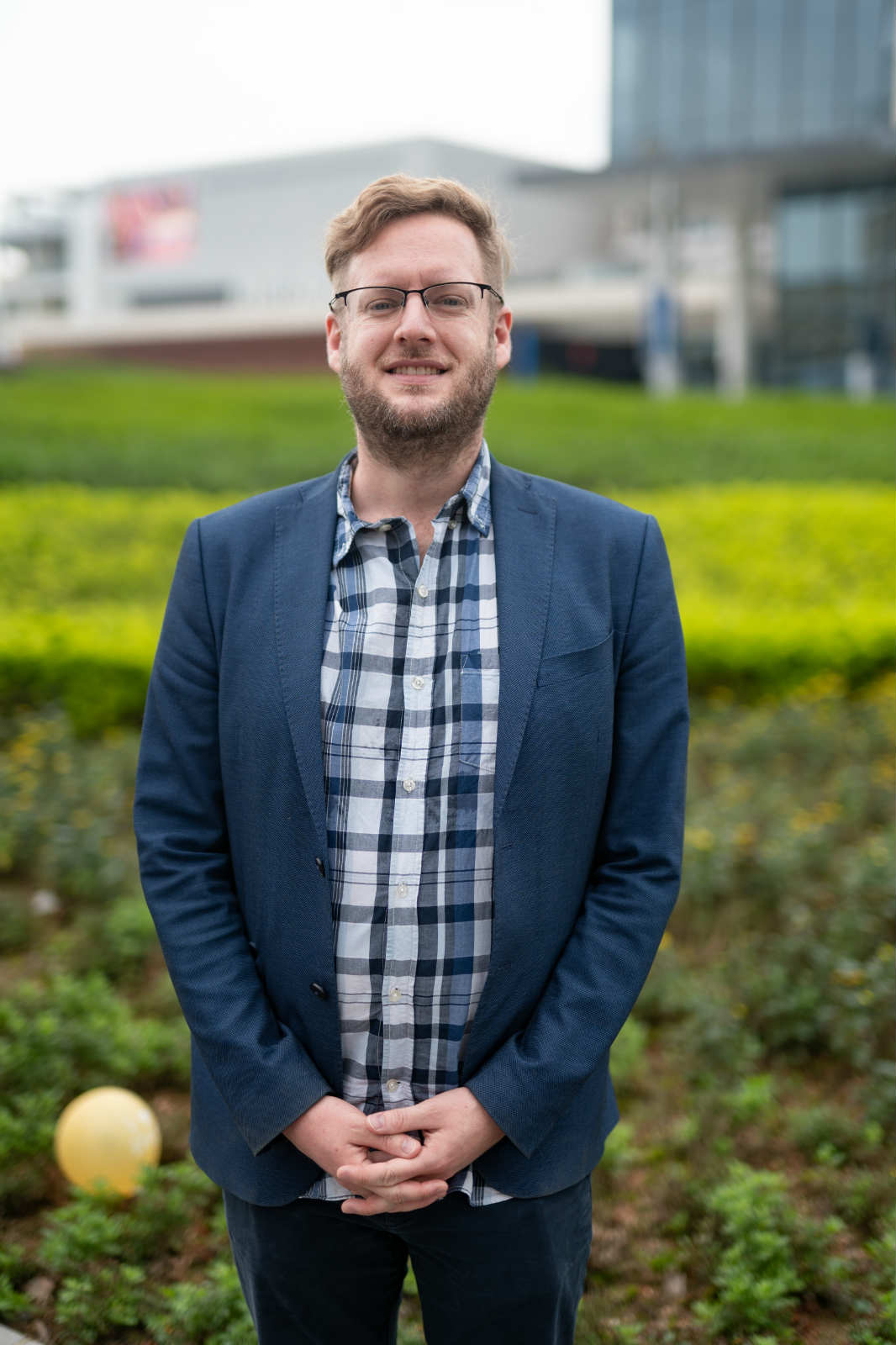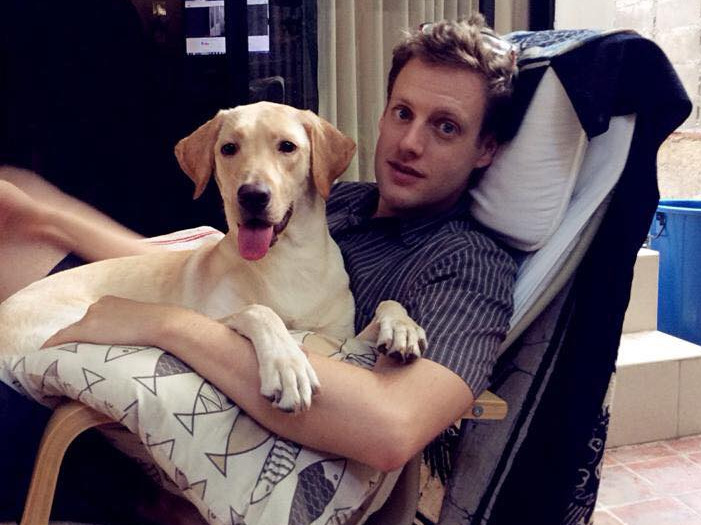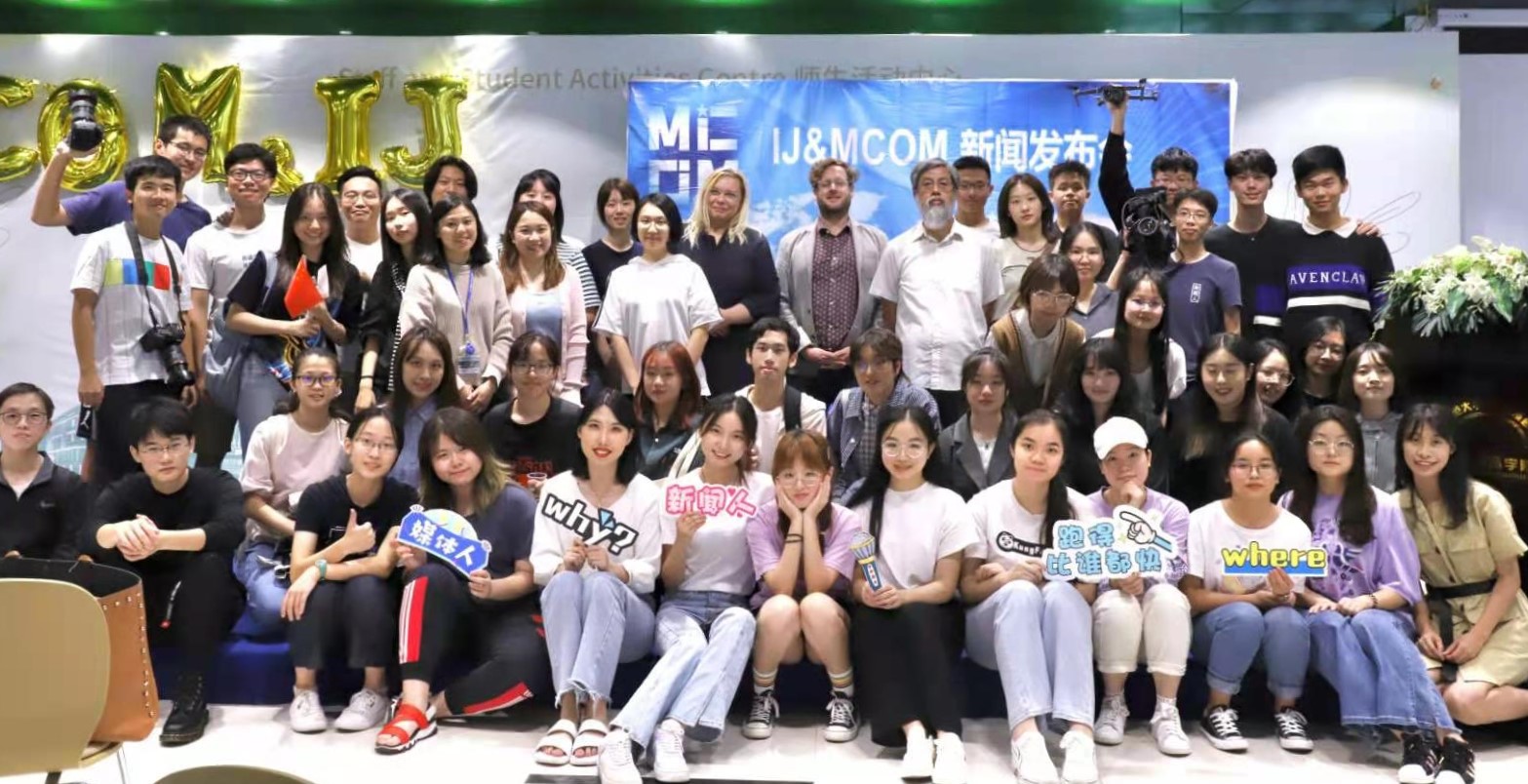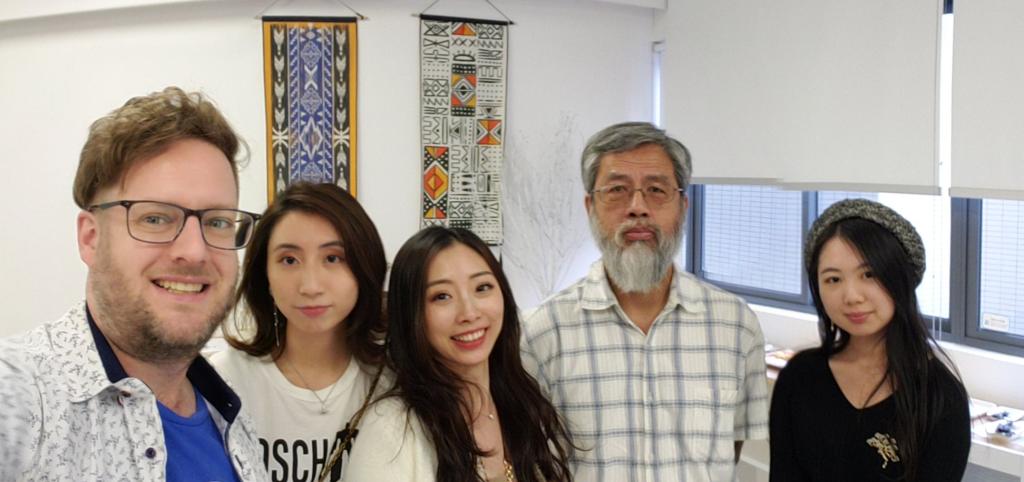With a mother from Canada and a father from the US, Dr Jesse Owen Hearns-Branaman sees things with balance and weighs both ends of the spectrum. Jesse is an Associate Professor as well as the Acting Programme Director for Media and Communication Studies Programme at UIC. He has travelled for much of his life, gaining tons of experience and seizing opportunities when they arise.

Dr Jesse Owen Hearns-Branaman
Armed with a Bachelor's degree in Radio and Television Studies from San Francisco State University, Jesse went to look for employment. He met various people from China when he was informed of teaching opportunities there. As a result, Jesse stepped foot for the first time in China at 23 years old when he went to teach English in Ningbo. The teaching aspect seemed to appeal to Jesse; however, he wanted to teach what he had studied rather than English, which motivated him to pursue a Master's. He obtained his Master's Degree at the International Communication Studies from the University of Nottingham in Ningbo. This was Jesse's first experience with joint venture universities in the Chinese mainland. "I started part-time teaching there, and I found that I liked teaching university students, so I applied to do my Master's there," explained Jesse.
Jesse mentioned how the University of Nottingham started to favour faculty members who had a PhD. This struck Jesse, making him decide that he had better carry on with a PhD degree if he wanted to stay in academia. With some research, Jesse discovered that it only takes three years to earn a PhD in the UK. As a result, he headed to the University of Leeds to earn a PhD in Communications.
While studying for his PhD, Jesse also worked as a teaching assistant to earn more money and gained valuable experience. After completing his PhD, Jesse's next step in his career was in Bangkok, where he taught at the National Institute of Development Administration (NIDA), a public graduate university in Thailand under the Commission on Higher Education. Initially, for a summer programme, this turned out to be regular employment for him. Jesse explained that NIDA's system would require him to work extra to make great money; however, he wouldn't have the time for research. It was finding the right balance between working and research that mattered to him.

Jesse in Thailand with his dog, Isabella
After a while, Jesse found NIDA somewhat limiting. Jesse had some frustrations because, even though the classes were at NIDA were in English, meetings and administration were in the local Thai language. These meetings could go on for hours. Jesse summarised: "It was good; the students were interesting, and there were many international students." While out in Thailand, Jesse found himself a four-legged friend, his yellow Labrador dog called Isabella.
When looking out for other opportunities, Jesse had always thought about coming back to China. Jesse saw UIC's position and had already known about UIC from his days in Ningbo.
UIC's big appeal for Jesse is that everything is taught in English, including engaging with the administration offices. UIC boasts a vast majority of both international staff and locals to give a more balanced and diverse workforce. This healthy mix of staff was an interesting aspect for Jesse, which believes it plays a massive advantage to UIC compared to other joint-venture universities. The biggest attraction for Jesse at UIC was the Journalism programme. Previously in Thailand, Jesse has been teaching more general subjects around language and communication, but UIC offered specific subject classes. "Even before I was coming to UIC, I based a class on a book I had written, Journalism and Truth. I couldn't use that book in NIDA as you could not have a specific class about journalism," explained Jesse.

Jesse, friends, and dogs in a tuk-tuk in Tangjia
When asked about joint-venture universities' appeal, Jesse believes in different perspectives coming together, such as testing a Western theory in a Chinese context. He admits that this might be down to his educational background because he wrote his Master's about applying a Western theory to China. "There is a big mix of ideas at UIC, and it is not narrow-minded like other universities, which claim to be international but is actually more about their city," said Jesse. He went into more depth of how UIC has a much better balance as a joint-venture university compared to others.
"The more you work at different universities, the more you realise everyone has their own setup," explained Jesse. UIC has small class-sizes due to the way the programmes are broken up into smaller classes. Jesse would like to see UIC recruit more international students. Jesse explains that most international students he met when he was a student during his time in China were postgraduates and hopes UIC can focus on that in the future.
Before coming to UIC, Jesse had a vague idea about liberal arts education. Jesse explained his experience of taking electives classes outside of his major and how they helped him.

Media and Communication Studies activity in 2020
Jesse sees the advantages of having a liberal arts education as it helps students have a broader outlook, gain wider knowledge, and more balanced knowledge base instead of strictly being one topic focus. "UIC emphasises that students try other things," explained Jesse. "Journalism is an interdisciplinary area, and being more broad-minded helps in that field.
"I find that when my students need to create something, they often focus on an area that they have studied during their whole-person education classes. For example, I had some students who did a documentary about disabled people who do blind massages, as the students had learnt about it previously," said Jesse.
As Jesse is the Acting Programme Director of Media and Communication Studies, he has been trying to move forward and focus on including a wider variety of digital media and production skills. "While news writing is essential, it should be just one part. Other areas need to be more up-to-date by looking at the latest and most innovative media practices on the market."

Jesse with Prof Edgar Yuen (second from right) and journalism students
Jesse explains how he would like to see more courses teaching modern skills, which are relevant to new media and social media formats. Another direction that the programme is introducing is more theoretical courses. "Many students in the past graduated with plenty of practical work knowledge but not enough theoretical knowledge, which affected some of their postgraduate study choices. It is all about finding the right balance".
From MPRO
Editors: Samuel Burgess, Deen He
(with thanks to the ELC)

